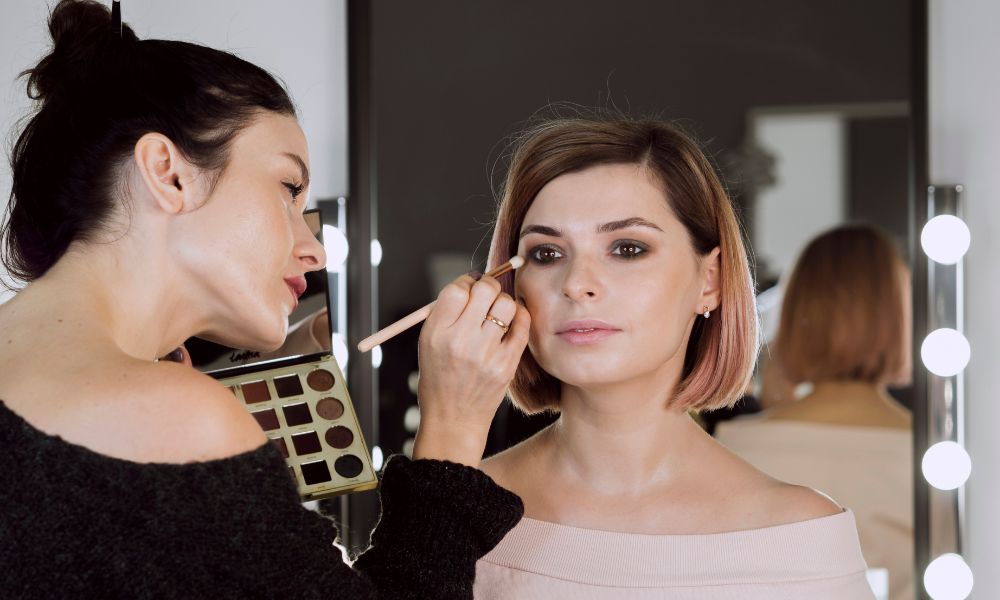Makeup is often celebrated as an art form, but beneath the creative strokes and vibrant palettes lies a deeper science. To achieve flawless application, lasting results, and healthy skin, understanding your skin type is essential. Every foundation, primer, or powder reacts differently based on whether your skin is oily, dry, combination, or sensitive. By learning how products interact with your unique skin, you can elevate your beauty routine from trial-and-error to science-backed perfection.
Why Skin Type Matters in Makeup Application
The base of any makeup look is the skin itself. If products are mismatched with your skin type, issues like creasing, patchiness, or excess shine can occur. For instance, applying a dewy foundation on oily skin may lead to a greasy finish, while using matte formulas on dry skin can highlight flakes. When you align your products with your skin type, makeup not only looks better but also feels comfortable throughout the day.
The Main Skin Types Explained
- Oily Skin
Oily skin tends to produce excess sebum, leading to shine and enlarged pores. Makeup can slip off or oxidise quickly if not managed properly.
Makeup Tips for Oily Skin:
- Use oil-free, mattifying primers.
- Choose powder or matte liquid foundations.
- Set makeup with a translucent setting powder.
- Blotting papers can be a lifesaver during long days.
- Dry Skin
Skin that is dry often feels tight and can sometimes develop visible flakes. Makeup can cling to rough patches if the skin is not prepped well.
Makeup Tips for Dry Skin:
- Hydrate with a moisturiser before applying makeup.
- Use dewy or hydrating foundations.
- Cream blushes and highlighters blend more smoothly.
- Avoid heavy powders that accentuate dryness.
- Combination Skin
Combination skin is a mix of oily and dry zones, often with an oily T-zone (forehead, nose, chin) and drier cheeks.
Makeup Tips for Combination Skin:
- Multi-priming works well (mattifying primer on oily zones, hydrating primer on dry areas).
- Use foundations with a natural finish to balance the look.
- Apply powder only where needed to control shine.
- Sensitive Skin
Sensitive skin reacts easily to fragrances, certain ingredients, or environmental stress. Redness and irritation are common concerns.
Makeup Tips for Sensitive Skin:
- Opt for hypoallergenic and dermatologist-tested products.
- Avoid strong fragrances or alcohol-heavy formulas.
- Choose mineral-based makeup for gentler coverage.
- Always patch test new products before full application.
The Role of Skin Prep in Makeup Science
Even with the right products, skin preparation is key to flawless application. Prepping ensures that makeup blends seamlessly and lasts longer.
- Cleansing: Removes dirt and oil, creating a fresh base.
- Moisturising: Balances hydration levels, regardless of skin type.
- Priming: Smooths texture and enhances product performance.
For example, a hydrating primer can revive dull, dry skin, while mattifying primers can control shine on oily skin. Understanding your prep routine is just as important as selecting the right makeup.
Ingredients to Look For (and Avoid)
The science of makeup is also about recognising ingredients that support or harm your skin type.
- For Oily Skin: Look for salicylic acid, niacinamide, or oil-absorbing clays. Avoid heavy oils.
- For Dry Skin: Hyaluronic acid, glycerin, and ceramides provide hydration. Avoid alcohol-based products.
- For Sensitive Skin: Soothing agents like aloe vera, chamomile, and oat extract help calm irritation. Avoid harsh fragrances or sulfates.
This ingredient awareness not only improves how makeup looks but also keeps your skin healthier in the long run.
Common Mistakes to Avoid
- Skipping Moisturiser: Even oily skin needs hydration.
- Using the Wrong Primer: Not all primers work for all skin types.
- Over-Powdering: Too much powder can emphasise texture.
- Ignoring Expiry Dates: Expired products can irritate skin.
By steering clear of these pitfalls, you ensure a smoother, more professional finish every time.
About Aditi Dubey
Aditi Dubey is a celebrated makeup artist in Dwarka, known for her exquisite bridal and traditional makeovers. With a background in aviation and global exposure, she brings a unique perspective to beauty. Her signature style seamlessly fuses contemporary trends with classic elegance.
Aditi also trains aspiring artists through her courses. Balancing roles as a mentor, entrepreneur, and mother, she empowers women through her craft, turning every face into a graceful work of art.
Conclusion
Makeup may seem purely artistic, but understanding the science of skin types transforms the entire experience. When you choose products tailored to your skin—whether oily, dry, combination, or sensitive—you achieve not just beauty but also skin health. The right knowledge helps you avoid common mistakes, make smarter product choices, and enjoy makeup that enhances rather than hides. Before your next application, remember: the true magic of makeup begins with knowing your skin.
Don’t miss: Psychology of Makeup: Why We Wear It and How It Affects Us

